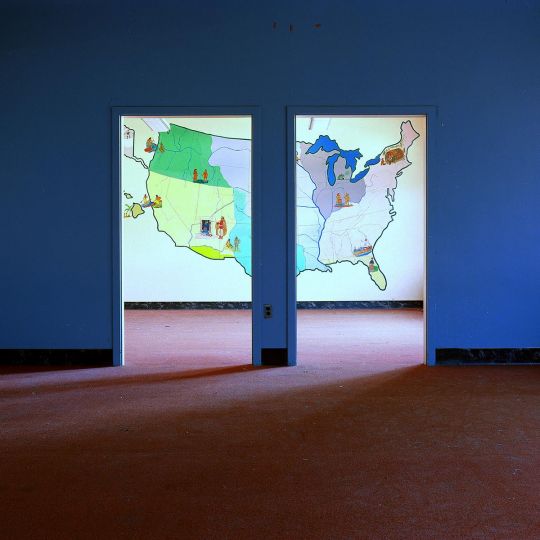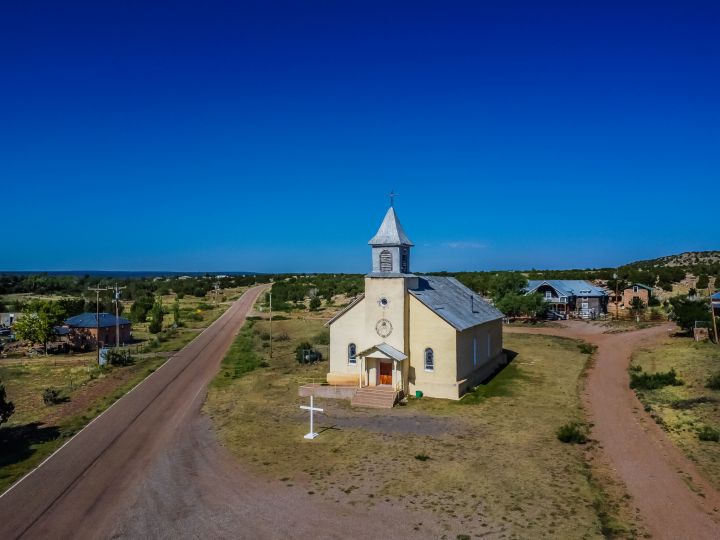“In the Soviet era, even adults did not pray, not to speak of youth. And today, there are many youths and even children in mosques. Religion has a positive effect on humans, it is an open fact. It’s better for youths to visit mosques, join religion and keep a healthy lifestyle than yield to some false guidelines and take weapon in hand,” a resident of Gudermes says. The inhabitants of Chechnya treat opening of Hafiz schools and other religious institutions in the republic guardedly. “Hafiz is a person who by heart knows Allah’s Book and explains it to people. Existance of hafizes is a good for all our people and the more hafizes are the better it is for us. This will protect our youth against involvement in various extremist sects and streams, serve for strengthening of an imana (faith) and Islam in the republic.”
“Here, great attention is given to the religion and construction of great number of mosques and Hafiz schools confirms it. However, it is hard to say if they bring benefit. Hafiz schools or mosques will lead the society to religion unless it strives itself for it.”
To become a Hafiz, one must learn by heart all 114 surahs and 6,236 ayahs of the Quran. Every year, the number of people who wish to study in Hafiz schools grows and now, a competitive selection is carried out for the future pupils.
Today, five Hafiz schools work in the Chechen Republic. In 2010, an educational institution named after a brother of the Head of Chechnya Zelimhan Kadyrov was opened in the ancestral Kadyrov village – village Tsentaroi (the brother of Zelimhan died in 2004). The second Hafiz school, named after the former head of United Arab Emirates sheikh Zaid al Nakhaiyan, was opened in August 2011 in the city of Gudermes. The third functioning Quari school opened in Grozny in May 2012 and bears the name of the mother of sheikh Kunta-Haji Kishiyev — Hedy Kishiyeva.The fourth Quran learning school was built in the city of Urus-Martan and the fifth school in the republic opened in the city of Argun (the religious institution is named after the grandmother of the head of Chechnya – Tabarik Baysultanova).
From one hundred to two hundred boys in the age from ten years study in each of these schools, which takes three years. Hamzat Kadyrov, the nephew of the Head of Chechnya Ramzan Kadyrov, became the first graduate of the Tsentaroyevskoi Hafiz school and immediately after the graduation was appointed to the post of the director of this school. In the past year, it was also announced that Aishat, the oldest daughter of Ramzan Kadyrov, also learned the Quran by heart and became the first hafiz-girl in Chechnya. But the first mass graduation occurred only a couple of years ago. In the words of a representative of republican muftiyat (Islamic High Council), brand-new Hafizes shall pass their knowledge to other believers, strengthen Islam and struggle against those who incorrectly interpret the principles of Islamic religion. “Transfer of the knowledge to others is a part of duties of each believer who knows the Sacred book. And this possibility will be provided to all the graduates,” the mufti stated. But he is not explaining in what way these adolescents will be used in resolution of religious issues. “It was hard to learn, but with Allah’s help we managed to successfully complete the study. My parents are more delighted about it than me,” says one of the graduates of the Grozny Hafiz school.
“I would wish to go on refining my knowledge in the field of religion and become useful to our republic. “Hafiz in Allah’s eyes is so high that he is allowed to save ten relatives from the hell’s fire,” representatives of muftiyat say.
At the same time, some local theologians believe that a “Hafiz” concept is much wider than the sense which the current mullahs put into it. “Just teaching of surahs and ayahs of the Sacred Quran by heart does not give a person the right to be called a Hafiz. Not only must they know the Quran by heart, but also be able to interpret it, constantly perfect their knowledge and share them with others. Hafiz is kind of a lifestyle when a believer entirely and completely dedicates himself to service to Allah and refuses everything wordly,” the former imam of a mosque in Chechnya tells.
The residents of Chechnya have different opinions about opening of many religious institutions in the republic in the recent years. Some believe that study of religion is the most important thing for the coming generation, because before Chechen people eviction in 1944, almost every family first of all taught children the principles of the religion, they taught to read the Quran and understand the sense of religious issues; it was considered right because a truly religious person will not commit evil, will not smoke, will not drink or lead an unjust lifestyle, but will, he will distinguish halal and haram (allowed and forbidden) and duly bring up his children. And the fact that one can only welcome the fact that the leadership of the republic pays special attention to the religion and issues of its development and diffusion can be only welcomed,” an imam of a mosque notes. Others are convinced the authorities of the Republic give excessive attention to the religion putting youth off it. Today, 20 Islamic madrasahs and two Islamic higher schools – the Russian Islamic university named after Kunta-haji Kishiyev in Grozny and the Islamic institute named after Ahmat-haji Kadyrov in in Kurchaloy regional center work in Chechnya. Over 700 mosques function within the republic, which shows ever greater Islamization of a region. What Ramzan Kadyrov says about that: “It all is being done to enlighten the Chechen youth, to be sure that our growing generation will not be disoriented by different lying ideologies which have nothing in common with Islam religion. I believe we will be able to oppose this evil thanks to Hafiz schools and madrasah being built in Chechnya. Today, we have around two hundred Hafizes in the republic, and they cannot be stupefied by our enemies, because having knowledge, one will not buy into lying slogans and fine words” — “We all remember the time when terrorists and extremists brutally behaved in both Urus-Martan, Tsentaroye and Alleroi, as well as in other towns. They killed people, despised Chechen people traditions and customs, distorted the Islam religion. Today, this time is gone and after having passed through all this, in these schools we will teach and prepare our Hafizes for nobody else to succeed in putting Chechnya and its people in the abysses of chaos and a war.”
















